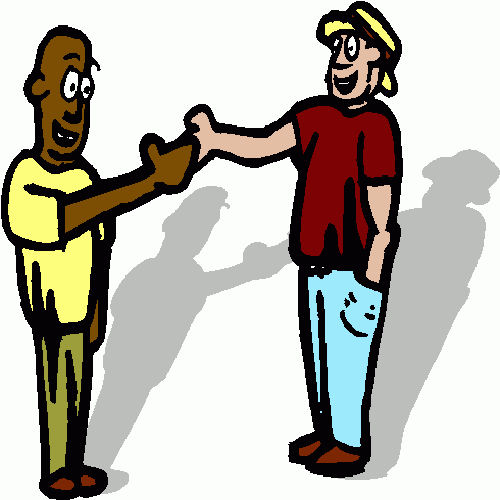I was at the post office today, mailing a letter. I was waiting in line when this elderly gentleman said to me, a little discreetly, “You’re the second white guy I’ve seen in this neighborhood.” He was implying, I supposed, that there were not enough white people in this neighborhood.
I was faced with a dilemma, a particularly awkward dilemma because the post office was indeed populated mostly by minorities. What do I say in response? Do I comply with him and say, “Yeah, man. Way too many minorities here”? Do I antagonize him by saying, “Fuck you, racist”?
I opted for a third approach. I said, “It’s a nice community.” This seemed to sort of disarm him. He said, “Yes, of course,” and left.
This little exchange got me thinking about how I have interacted with elderly folks who, for whatever reason, harbor thoughts and feelings I would call “racist.” I remember once, when I was working as a waitor, having a conversation with an elderly man. He asked what I wanted to do for a career. I said, “I want to be a teacher.”
He replied, “Just be sure you don’t end up at some nigger high school. They’ll cut your damn heart out.” This was around 2007. I was completely taken aback and the only response I could think of was, “More coffee?”
With strangers these interactions are particularly awkward because you have two opposing forces working. One is the person’s prejudice. And the other is the social convention of not offending someone. How do you navigate those waters?
What about with family members? How often have you heard someone say, “Yeah, my grandpa (or grandma) was super racist?" My grandma (who I called “grandmere”) was racist for a long time. This was probably because she lived in a small Midwestern town and didn’t see a “minority” in person until she was an adult. Sometimes, over dinner, she would say incredibly racist things, particularly toward black people. I was kind of a shy kid, but for some reason, I would call her out. “Grandmere, you can’t say that,” I would say, “That’s racist!”
For a long time she remained racist. What changed her mind was not my scolding, but something more personal, more relational. My cousin Jenny joined the Peace Corps after college, and ended up marrying a man from Cameroon named Victor. He is one of the sweetest men I know. He is very tall and strong, but his personality is very soft. Anyway, because of an illness, grandmere ended up staying with my cousin and her husband. Over time, she cut down her racist remarks. She got to know Victor, a black person, and realized that whatever negative preconceptions she might have held for so long about black people did not apply to him.
This got me thinking about how we learn, or unlearn things. I was talking to a student this morning about teaching styles. This guy was in the military and he said, “As I see it, there are two ways people learn things. They can learn by fear. That’s how they did it in the military. Or people can learn by dialogue, like we do in class.”
I suppose, when dealing with something as deep-seeded as racism, this is perhaps the best approach. Have conversations, build relationships. People don’t like being told what to think. We learn best when we find things out for ourselves, through conversations and experiences. That’s what changed grandmere’s mind.

